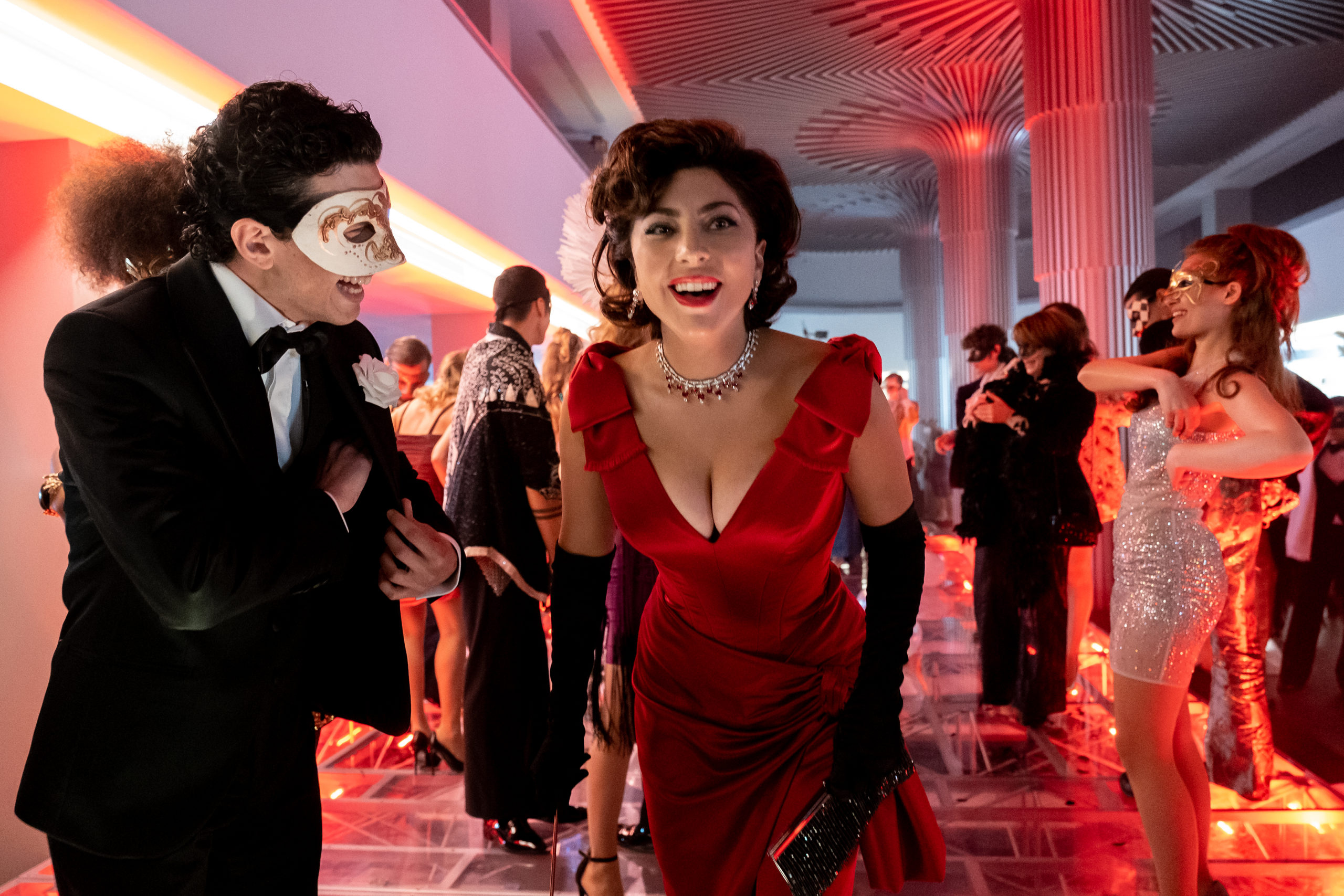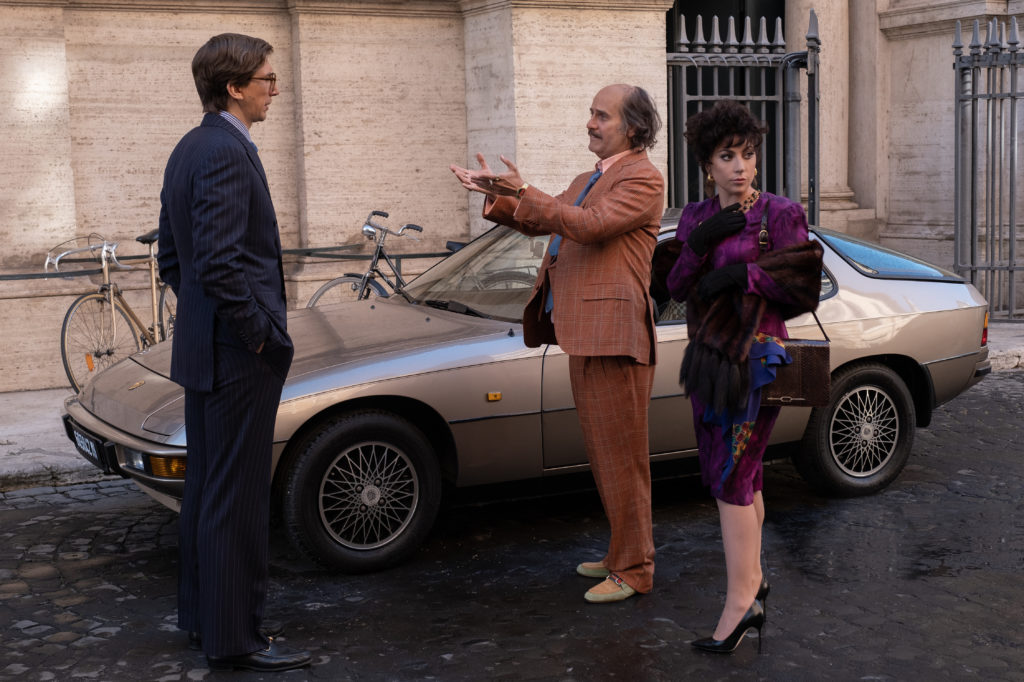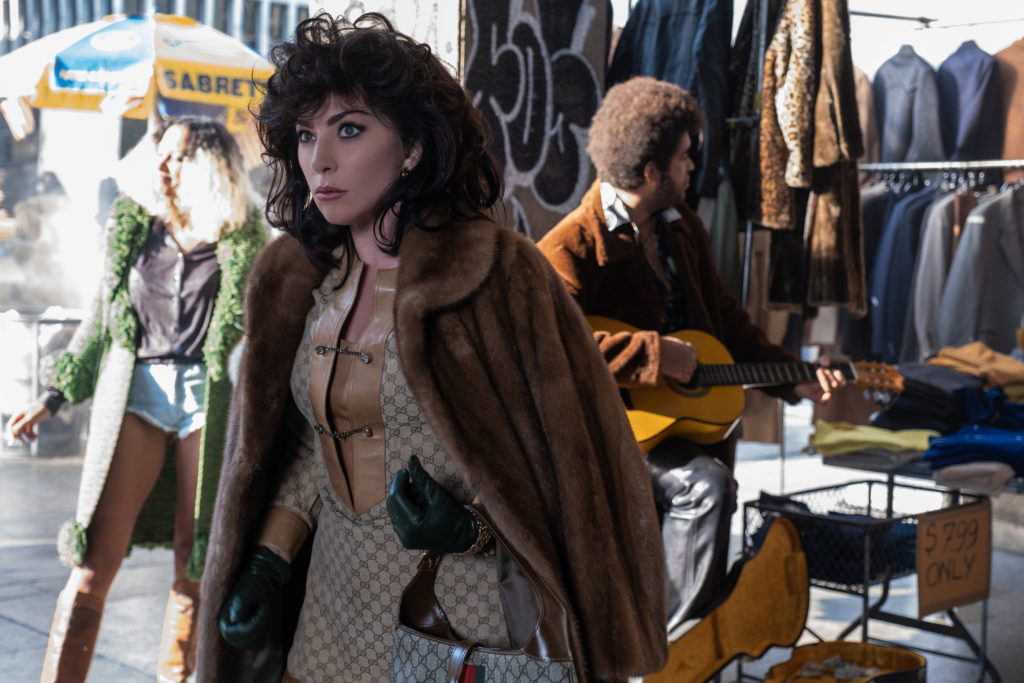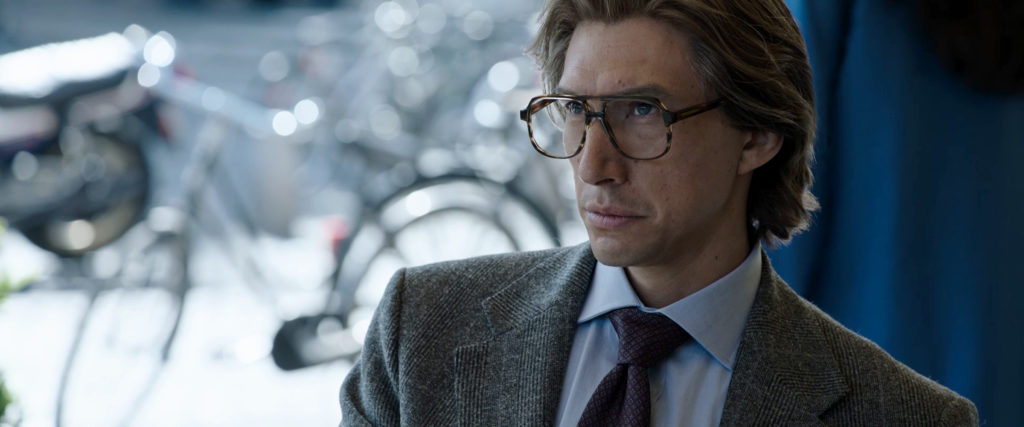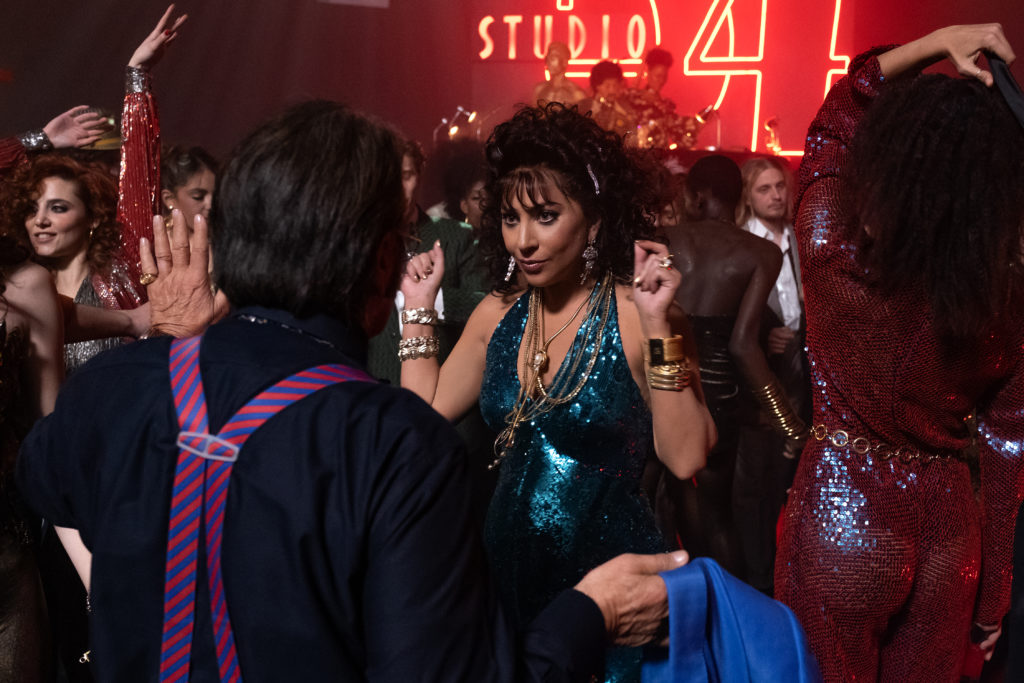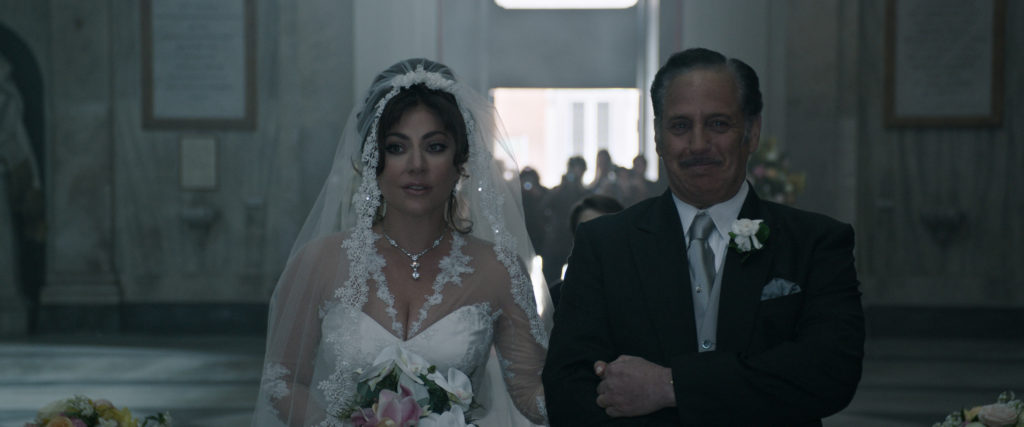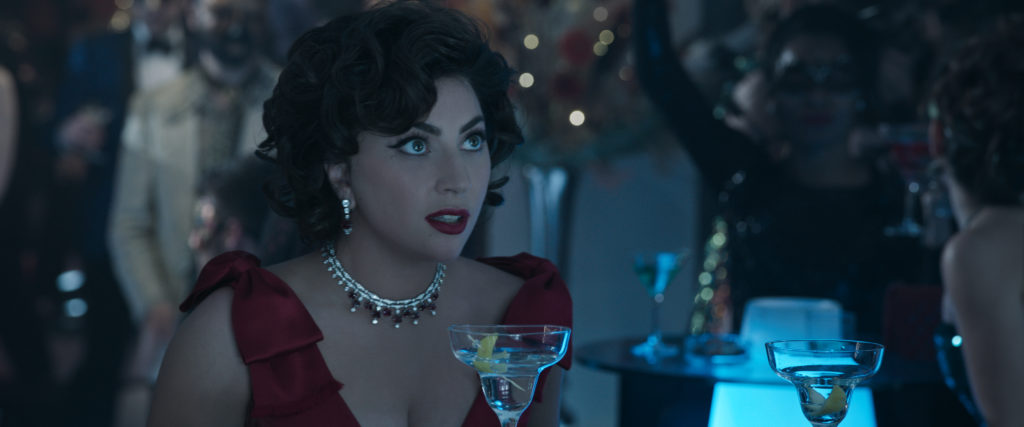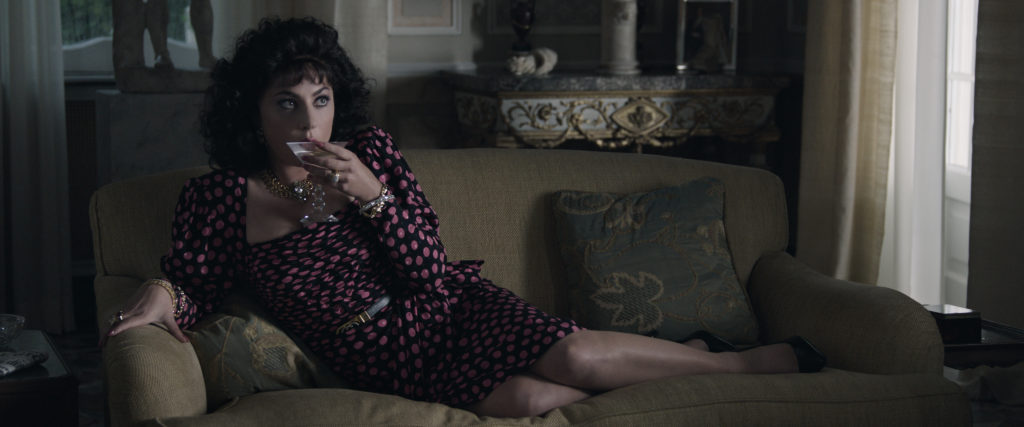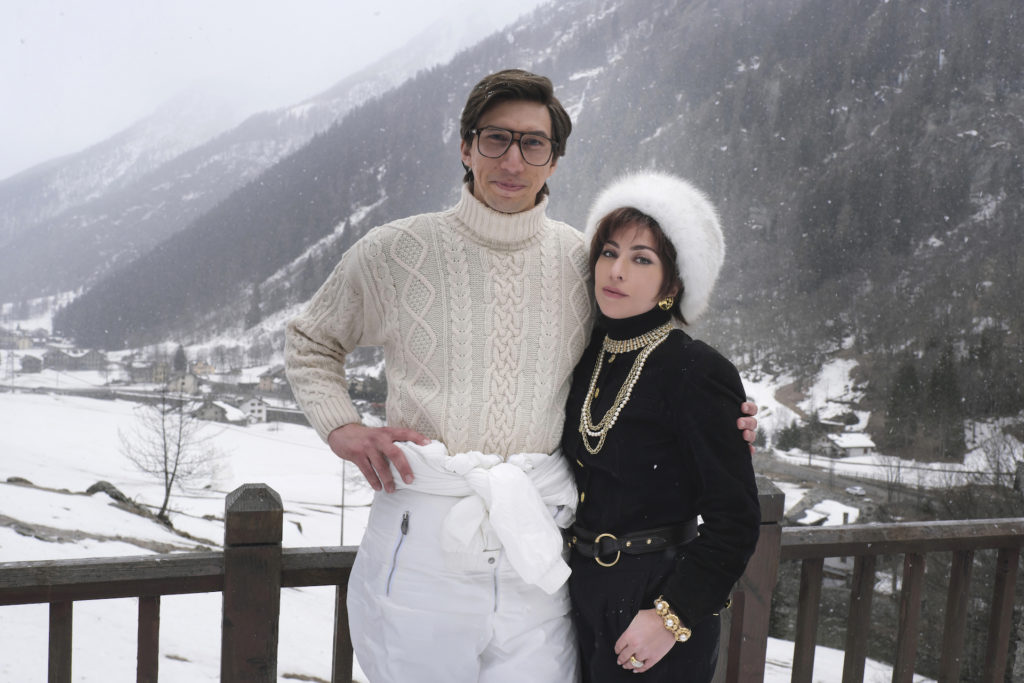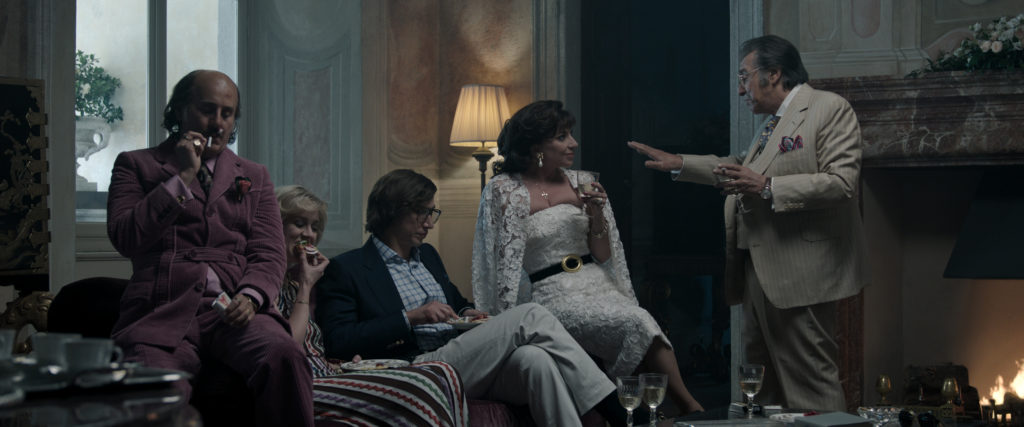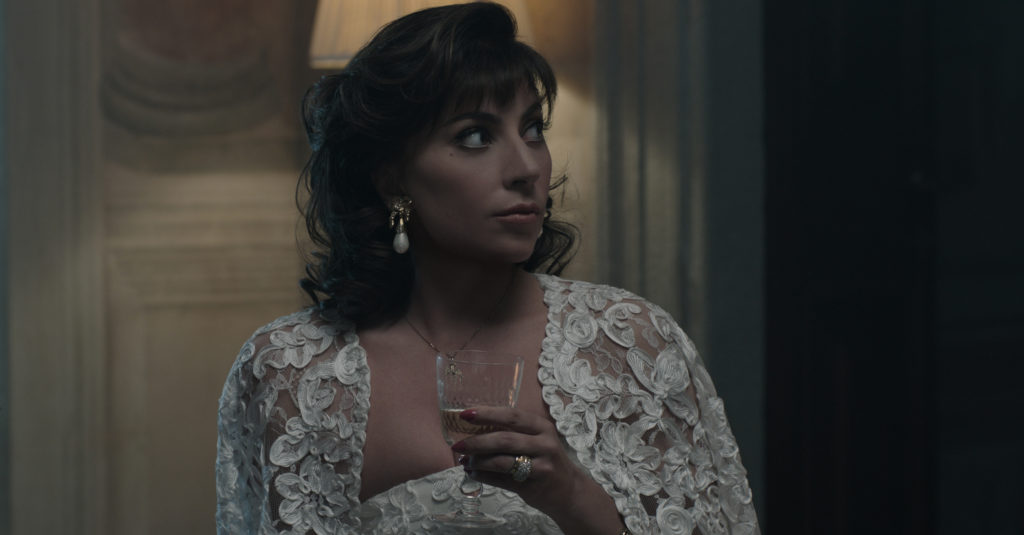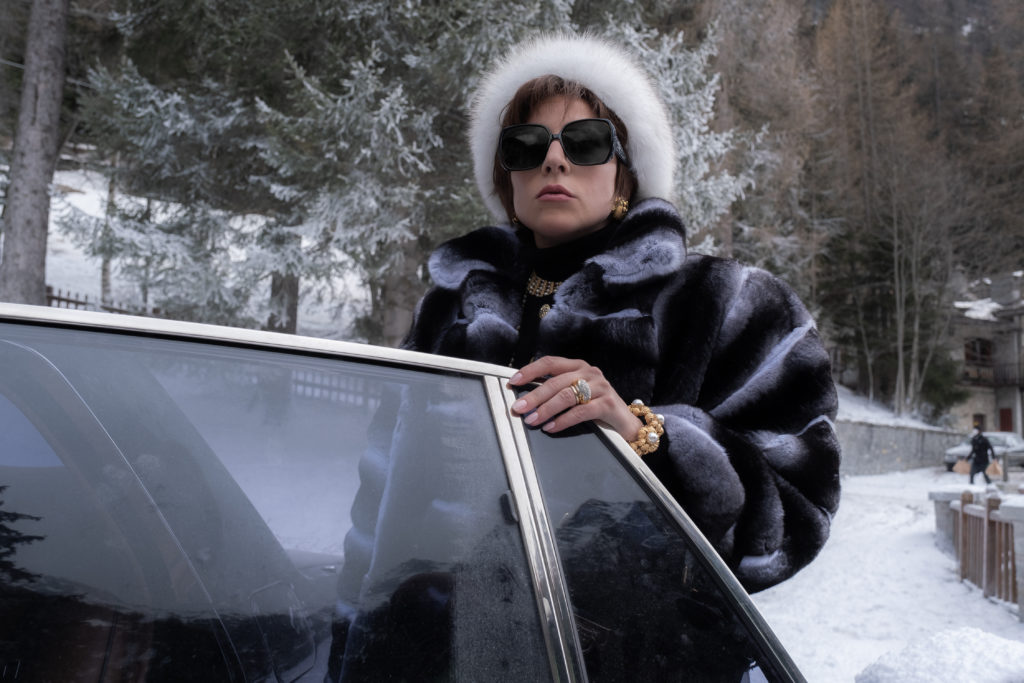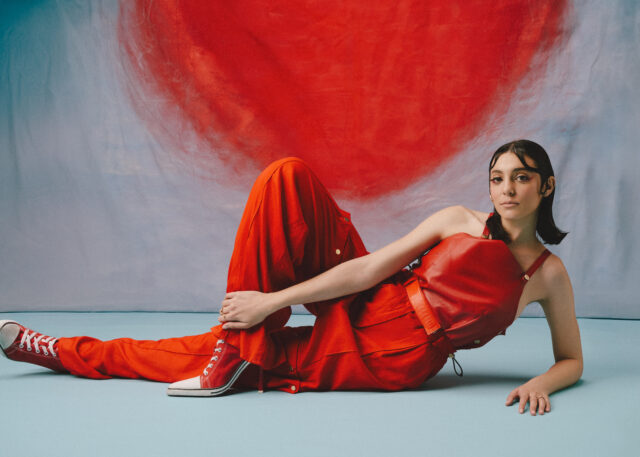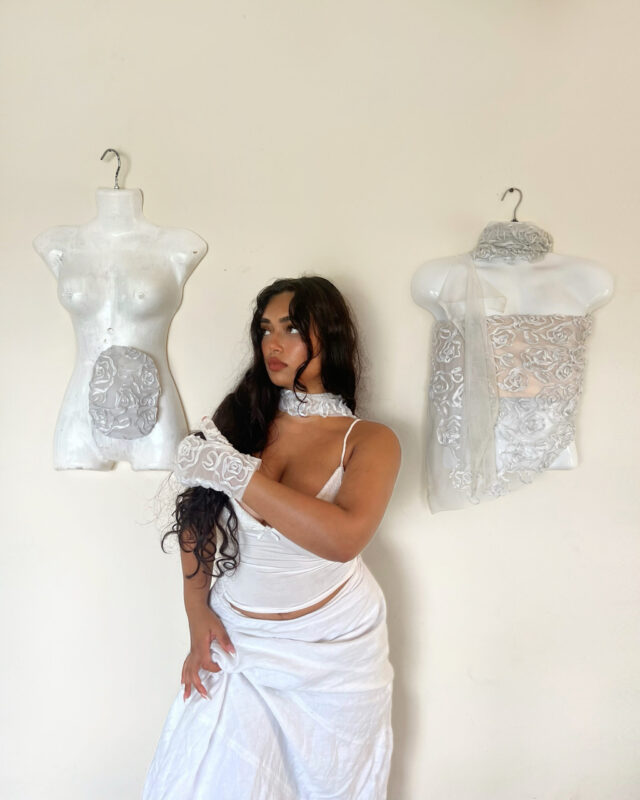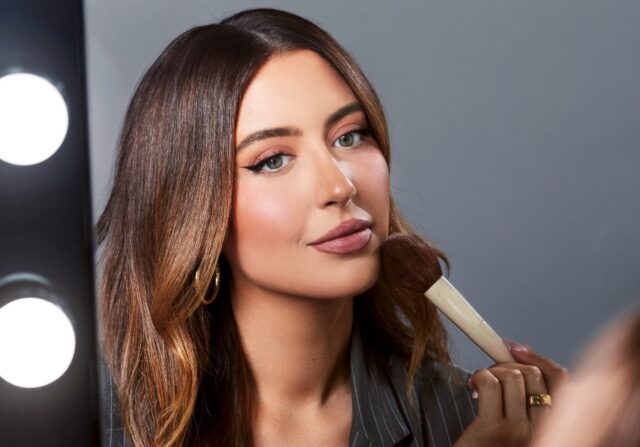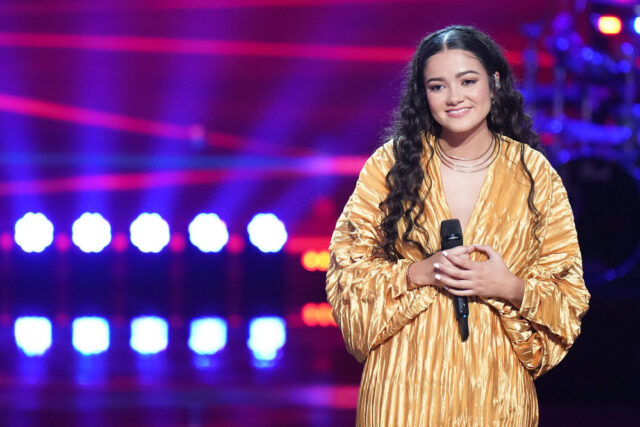INTERVIEW: ‘House of Gucci’ Cast and Creators Share Details on New Film
House of Gucci had its industry premiere at the Academy Museum of Motion Pictures on November 4 and opened up in a press conference post-screening for a room full of journalists and industry critics.
House of Gucci is one of the most highly anticipated films this fall starring Lady Gaga as Patrizia Reggiani, Adam Driver as Maurizio Gucci, Jared Leto as Paolo Gucci, Al Pacino as Aldo Gucci, and Salma Hyack as Pina Auriemma. The film was directed by Sir Ridley Scott (The Last Duel, Blade Runner, Thelma & Louise) written by Roberto Bentivegna, and produced by Giannina Facio with a theater release date of Nov 24.
The film follows the life of Maurizio Gucci who takes over the Gucci estate after his ailing father dies, not before marrying his true love Patrizia Reggiani, and going against his father’s wishes not marrying within his social class. Patizia is the daughter of a trucking businessman which is meager when compared to the now billion-dollar empire that the Gucci name is known for. Patrizia’s gaze turns from true love to ambition and power and eventually turns to rage and jealousy as she ends up killing her estranged husband after he abandons her and her daughter for a new lover and a faster life. Along the way, we see the rise and fall of generations of fashion elites, and one of the most powerful names in luxury retail, display a family built on a lot of talent, a bit of corruption, and loads of betrayal. Read on below to hear what the cast had to say on this remarkable award-worthy film.
Q: Is there a movie or an actor or performance that really shaped you?
LADY GAGA: “The reason I think I fell in love with acting and it might sound, you know, quite silly, but not for me is watching Judy Garland in The Wizard of Oz. And as a young girl, I just was fascinated by this film. I thought it was so beautiful, so whimsical, so wonderful, and I thought that her performance at such a young age was so beyond her years. So that’s really what made me fall in love with show business.“
SALMA HAYEK: “Willy Wonka and the Chocolate Factory. I remember watching this movie and this thing dawned on me that made me almost tremble [with] excitement and fear and the realization that there was a universe within this universe where everything was possible. The river could be made out of chocolate. You can chew gum and levitate and burp yourself back to Earth. And I realized in the films anything is possible you’re not limited to one life. You can be everything at any time in history. I was really young, and I just remember these butterflies saying, ‘Oh my God, this is the best thing that could happen in life, because then you’re not limited to your own.’
RIDLEY SCOTT: It’s rude. I was five years old and my mother used to take me to the cinema, and she took me to a film called Gilda, Rita Hayworth.
ADAM DRIVER: The Last Duel (laughs)
AL PACINO: “I guess the one I was really young. My mother used to take me to the movies, like three or four years old, and I saw The Lost Weekend. Don Birnam won the Oscar and I’ll never forget it because I remember, this may sound really autobiographical, but it is. So I saw it. I remember when he forgot where he hit the bottle of alcohol. He was [an] alcoholic. When he was drunk, he hid it somewhere because they didn’t want him to drink, and so he can’t find it. I mean, he’s alone in the house and he wants to drink. And so he goes through everything, all the closets. And it was that intensive. I never forgot that intensity. So when I would go home or I had a father who I hardly saw, but when I go see him, they would ask me what I was doing, and I said, ‘I saw The Lost Weekend and I could show you the scene.’ I was about six and I would get up there and just go, you know, really become intense looking. All I know is I thought it was intense and I really was in it. And they were laughing, which I thought was kind of weird, and I thought, ‘Why are they laughing at me? This is a serious scene.’ Anyway, I learned a little about acting at that point.
Q: Salma [mentioned] this morning that you’ve been wanting to make this movie for 20 years. Is that correct?
GIANNINA FACIO: “It’s more than that, I’m embarrassed to say, but I came across the book The House of Gucci and fell in love with the story, and I just somehow knew that I have to make this movie and it took me all of a sudden because we never had the right writer until Roberto really, he’s the only one that really nailed it. Ridley was attached three times, but I finally convinced him to make it this third time. There were two or three other directors attached to it, but it never came to fruition until now. It was a perfect time and the perfect cast. So I couldn’t be happier.“
Q: There are so many stories and characters to work with; where did you even begin when you started to break down this story?
ROBERTO BENTIVEGNA: “I was watching Sunset Boulevard at the time and I just thought, what if that story was told from Norma Desmond’s perspective, that was kind of the beginning, sort of the through-line. And then it was just a joy to go back to Milan in the 70s and 80s, I grew up in Milan in the 80s, basically, and to go back through the film, through the, you know, the real-life story was an opportunity to explore some of these places that I essentially grew up in. And to me, the key was to make it fun and, you know, to give it a sense of irony and not take it too seriously in the sense, because the characters are so big, you know? And so, yeah, that was kind of the beginning of it.”
Q: Was there anything you found in your research that you just couldn’t include? Because even though it was true, it was so crazy?
ROBERTO BENTIVEGNA: “I read a lot of articles from the 70s about the family as things were happening, which was interesting because obviously, it was, you know, the craziest family in Italian fashion at the time. And the one thing I noticed, for example, is the fascination with pigeons that Paolo has. There was one line in an article, you know, that he was the chairman of the Pigeon Fanciers Association. And I thought, ‘OK, that’s the character.’ Like, you know, he’s sort of like a pigeon boy. This is the first time that I’m seeing Jared outside of his costume, by the way. Nice to meet you.”
Q: Ridley, what attracted you to making this film?
RIDLEY SCOTT: “Giannina wouldn’t stop talking about it for twenty-seven years because we’ve been together; breakfast, lunch, and dinner. One day I met somebody in the office called Roberto, he’d written something for us quite small, but really beautifully and very succinctly put together as a three-act play for the film as a play. And we just thought, “What the hell? I said, ‘Do you want to write Gucci?’ So we gave him material that had been written in the past. That is to say the book. Right? Because of all the other screenplays that actually failed, they hadn’t worked, so there’s not much value in giving him screenplays that hadn’t worked. I think it seemed to me like three weeks I had a screenplay. So, yeah. How long did you take the first draft?”
ROBERTO BENTIVEGNA: “About three months (laughing)”
RIDLEY SCOTT: “The most important single thing you can do as a filmmaker is to get it on paper first before anybody, anything, get it on paper because that’s your goddamn blueprint, that’s your play, right? If you haven’t got the play, you haven’t got a film. So to me, a screenplay is a good friend. And I read the blueprint and went damn he nailed it, and that’s what it was.”
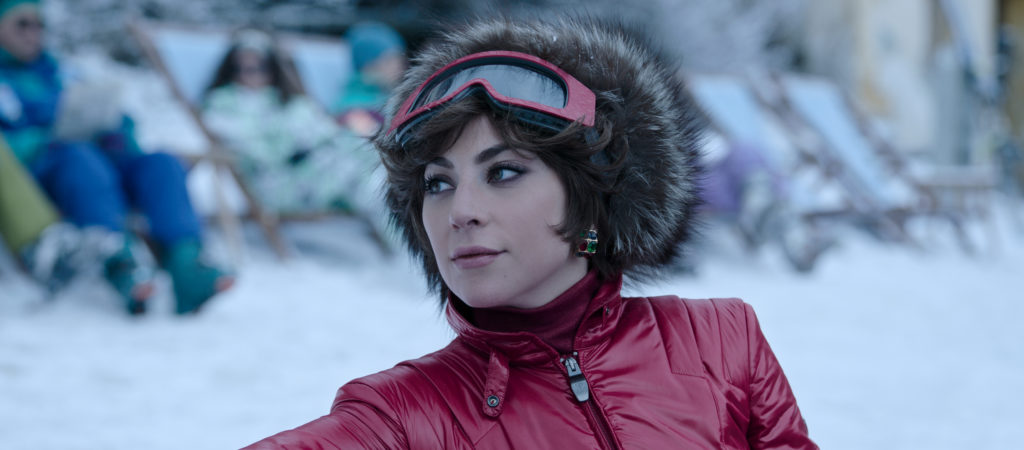
Q: Were you really waiting for the perfect script?
RIDLEY SCOTT: “Script reading to me is… I don’t analyze, I’m not forensically and analytic of a screenplay. I tend to read viscerally. I have a reaction to what I’ve just read. It’s visceral, and sometimes I can’t even put logic on why I like to do it. Why did Blade Runner God only knows, but I did do it. And when I met the writer guy called Hampton Fancher, He’s a great writer and but I’m a pretty good visualist. And so when we got together, it just grew and grew and grew. And so, funnily enough, my experience in everything I’ve done, oddly enough, the most rewarding and expansive relationship ever had was with Hampton Function, which sat for five months, completely readjusting the whole thing. And it just grew. And I think any director or any writer if you can get together in a room and actually spend enough time together, that’s the most valuable thing you can do.”
“You know, I’m blessed with an eye. Sometimes it would work against me because you know how times change. I was utterly killed for The Duellists because the criticism was, it’s too simplistic. It’s too pretty it’s too beautiful, there are too many filters; there were no filters. It pissed for forty-two days. So that was the filter. Now it runs on Netflix, forty years later, and is classified as a five-star masterpiece. That’s silly. It doesn’t really matter. And I’ve learned not to care. At the end of when I finished the movie, there’s only one critic that makes any sense at all, and that has to be yourself. Then you have to move on and figure what you just did, or you can be proud of and move on.“
Q: What interested you in this character? And how much did you know about her, not just before playing her, but before you’ve been reading the script? Were you familiar with the story?
LADY GAGA: “I actually didn’t know anything about Patrizia Gucci before I read the script? I learned about her first through the script, and then I spent a long time reading mostly exposition about her, and I did not read the book on purpose. I started reading the book and I thought that it was going to color my thinking and had a lot of opinions, and I didn’t really want anyone to tell me who she was. So I read everything I could read about her. I watched any interview that she ever gave to study her mannerisms and her accent. And also, I watched all those.. [True Crime]. I mean, I watched all of those, and I would start and stop it constantly to take notes so that I would only remember the facts and not remember any opinions that whatever true crime show I was watching had about her.
What made me fall in love with this project was Ridley, it was Giannina, it was this cast that’s here. I have to say that I really care about all of you, and I will never forget this experience. So thank you for sharing it with me. The other reason I fell in love with it, was because I thought, ‘Oh, this is interesting,’ because most people would be very excited to play a chancy, risky, gold-digging, murderer, that gets off on chaos and f*cking up people’s lives, and I thought, ‘Well, what if I made her a real woman?’
And there was almost no information about her pre-1995, which is when Maurizio Gucci was killed. And I thought what was fascinating about this was to go back to your question about power and privilege, which I’m not sure is the theme of most of [Ridley] films. However, one of the things that I do feel about this movie is that there’s a lot of money that these men are fighting for. There’s a lot of pieces of the pie that seem to be disastrously falling apart, but because everybody’s focused on the money and the power, they don’t notice the real disaster, which is her.
So that’s what I think about power and privilege in this film. That’s what I think about her, and that’s why I took this movie. It’s because I believe that some people can be hurt so much that they make big mistakes. I don’t view Patrizia Gucci to be somebody that had the murder gene. I never thought that she was particularly good at this. I think this woman went back to the scene of the crime in her own way and really put up her hands and said, ‘I did this.’
So I found this interesting. ‘Why did this happen and who was she?’ And I am grateful to Ridley and to Giannina and to everybody here for helping me create her youth and show how somebody really young and bright-eyed and sweet, might fifty percent fall in love with someone and fifty percent fall in love with what they mean.“
Q: Adam, you obviously worked with Ridley in The Last Duel in a very different role. At what point did he start pitching you like? Were you still working on that movie and he starts slipping you another script?
RIDLEY SCOTT: “He was in armor at the time. (laughing)”
ADAM DRIVER: “We were in dressing rooms. No, we had shot a month or maybe a month and a half of Last Duel in France and then we went down because of COVID. So when everyone was kind of down and Ridley called me and said, ‘There’s this other thing…’, and I had such great for the first two months or a month and a half working with him, one last duel. And actually what he’s describing aren’t kind of platitudes reserved for things like this, he really does follow this really regimented… you’re very much coming onto his world and it’s very opposite to my comfort level of the pace. It’s fast, which is not good or bad. It’s just different.
I just had an incredible trust with him, and I felt that he had incredible trust with me and in a way that I need to, and I feel like I had at least two months of trying to decide what picture he was making and shooting it with that many cameras. And I loved that he really promoted impulse and anything that kind of came along, we were doing something again, I would have been interested in doing so. It wasn’t. It wasn’t a hard sell. Then we went back and finished Last Duel, in which he was kind of storyboarding Gucci. So Janty [Yates] who did the costumes was kind of like slipping me little things as I was like…get out of the armor, then put on a suit to then ok now get back into armor, which was great and the tailor for the suits was amazing. But so it was really Ridley. And it was not a hard sell.”
Q: Salma, what is it like to finally, after all these years, see the final product?
SALMA HAYEK: “It’s thrilling. It’s very meaningful in many different ways because, you know, as a woman in this industry 20 years ago, we were very used to the struggle. I’ve made a lot of amazing friends in this business. A lot, a lot. But the greatest richness that this industry has given me was the beautiful, wonderful people that I’ve come across. As a woman in it have a lot of sisters that we love each other extra because we saw us be warriors and fight together. And so there’s a special thing, Giannina, I saw her never give up, and maybe she could have done this film before, but she never settle for something that was not as good as her vision was of what this could be. And that’s where you get your strength, and I’m sure many people that are from our generation, you know, that’s when you get your strength.
This is such an inspiration to me, her Stalinism inspiration to me and we’ve been there for each other for so long and in the good times and the bad times and then the opportunity also to come on board and then work with Lady Gaga and who I admire so much and I love the artist in her. She’s a brilliant singer. She’s a brilliant actress and dancer. But above all, I love our artistry and I love my girl. I got a little window. And I feel very privileged. She’s such an ultimate pro. She’s such a tornado, you know, fashion and ideas. This beauty is a guarded flower, so it kind of says a thing of sisterhood. I know we’re not the minority on this stage as usual, but it was intense. It was intense and it was great. It’s a story about a woman. And my god, I’m such a big fan of Ridley Scott.”
House of Gucci hits theaters Nov 24.
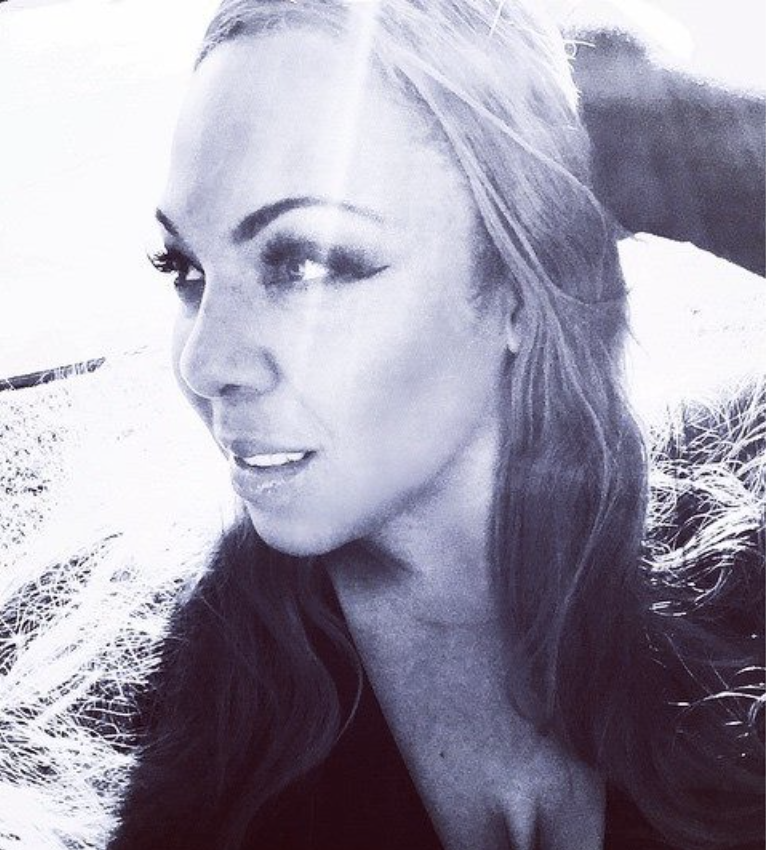
Award-Winning Publisher

